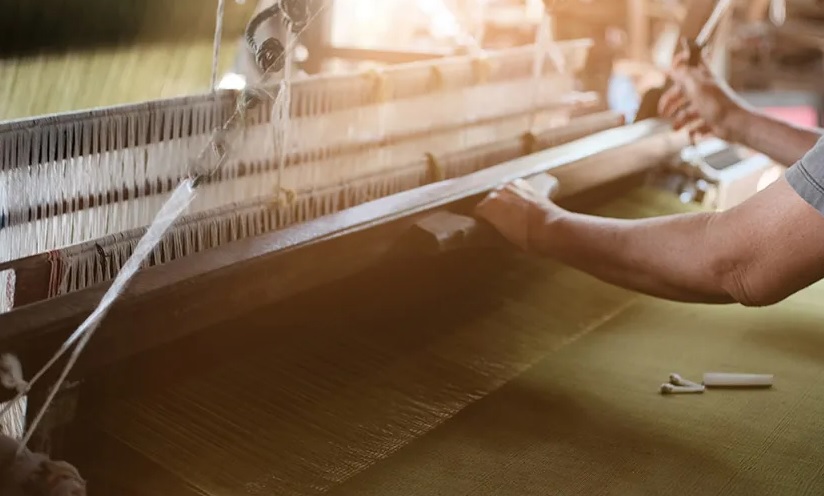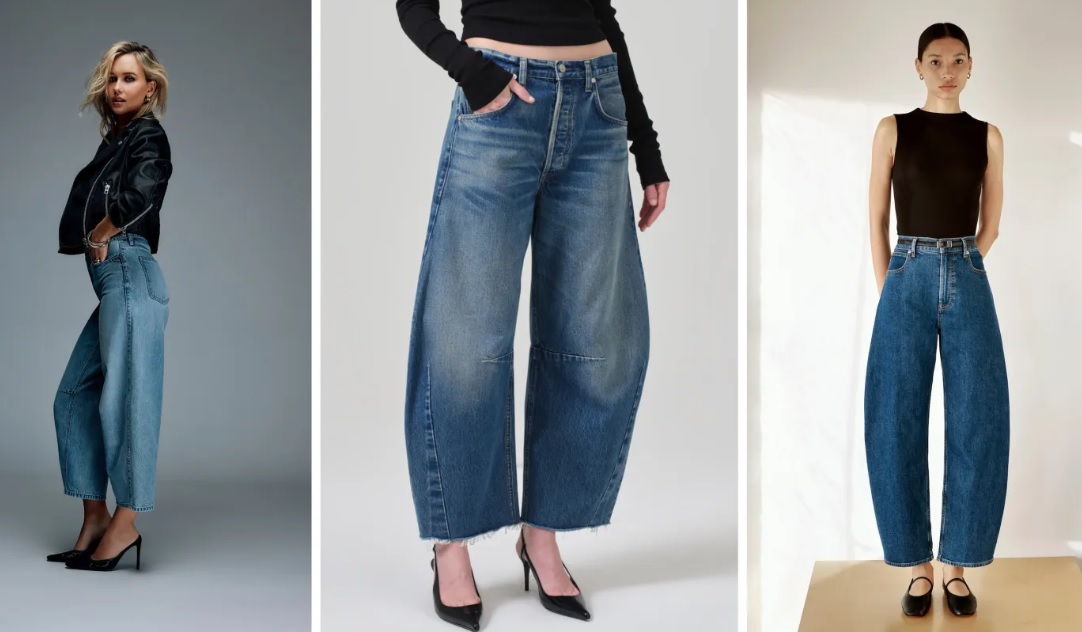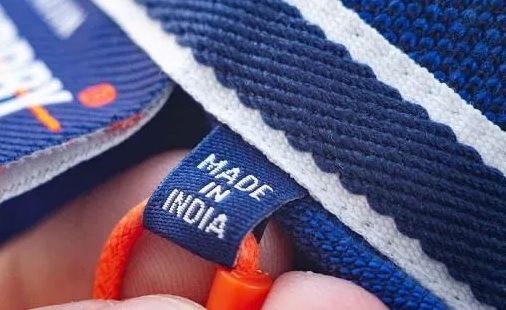FW
The Lenzing Group, a global leader in wood-based specialty fibers, made a significant impact at OSH India 2024, held at the Bombay Exhibition Centre. The event served as an ideal platform for Lenzing to highlight its advancements in sustainable and innovative safety solutions.
Lenzing showcased its Tencel fibers for workwear and Lenzing fibers with FR (flame-resistant) technology for protective wear. These products, designed for industries requiring stringent safety standards, combine superior comfort, durability, and flame resistance with environmentally friendly production processes.
Through interactive displays and expert consultations, Lenzing demonstrated how its fiber solutions address modern workplace challenges, such as ensuring worker safety and compliance with protective wear standards. The presentations reinforced the company’s dual commitment to innovation and environmental responsibility.
Avinash Mane, Senior Commercial Director for AMEA & NEA of Commercial Textiles at Lenzing Group, highlighted the importance of their participation in OSH India 2024. He emphasized Lenzing's dedication to providing high-performance solutions for industrial safety, focusing on innovative advancements in workwear and protective wear. Mane also underlined the company’s goal to drive the transition towards safer and more sustainable workplaces, noting that events like OSH India offer valuable opportunities to engage with industry leaders and demonstrate Lenzing's capabilities.
Lenzing expressed its gratitude to the organizers of OSH India 2024 for fostering a collaborative environment that promotes innovation in workplace safety and sustainability. The company remains committed to driving advancements that benefit both people and the planet.
N Chandrababu Naidu, Chief Minister, Andhra Pradesh has urged Central Government to address the cotton procurement issues in the state. CCI officials are intentionally refusing to buy cotton stock from the state’s farmers to benefit private buyers, allege farmers, Naidu alleges.
The Corporation has set up around 60 procurement centers at ginning mills and 11 more at market yards, but procurement levels remain lower than anticipated due to a high number of rejections.
Cotton Corporation of India (CCI) has refused to procure cotton stocks from farmers in Andhra Pradesh, citing high moisture content. The Corporation’s move is leading to middlemen and private cotton traders purchasing the rejected produce at significantly lower prices, resulting in heavy financial losses for the farmers
Faced with CCI’s rejection, many farmers are selling their cotton to local traders at discounted prices, unable to bear the transport costs of taking unsold produce back home. The Central Government had promised to procure cotton at Rs 7,521 per quintal this season. However, private traders are buying the rejected stock at just Rs 5,000 to Rs 5,500 per quintal, causing farmers to lose Rs 2,000 to Rs 2,500 per quintal.
K Atchannaidu, Agriculture Minister has urged the CCI to expedite the procurement process without causing further hardship to farmers. Naidu has already brought the issue to the attention of Giriraj Kishore, Union Agriculture Minister, requesting immediate action.
In recent years, strong global demand for cotton had kept the CCI on the sidelines, as private players snapped up over 90-95 per cent of the crop at prices higher than the Minimum Support Price (MSP) set by the government. Cotton farmers benefited significantly, with market prices reaching Rs 10,000 to Rs 12,000 per quintal. However, a sharp decline in prices to around Rs 5,000 per quintal this season has forced CCI to step in, only to disappoint farmers with mass rejections.
Pasam Ramarao, District Secretary, CPI (M) has accused CCI officials of working under pressure from private exporters and dealers. Their refusal to buy the stocks indicates a bias towards private interests at the expense of struggling farmers. In response to the growing concerns, Pemmasani Chandrasekhar, Union Minister for Rural Development, has urged officials to be more lenient in their procurement. Despite these appeals, CCI officials maintained that they are strictly adhering to the procurement norms set by the central government.
Small Industries Development Bank of India (SIDBI) plans to organise a series of training workshops for the MSMEs in the Ahmedabad Apparel Cluster from Nov 26-28, 2024.
Focusing on the topic, ‘Market Intelligence & Technological Development, these workshops will provide valuable insights on ‘Best Practices to Improve Productivity, Quality, Product Development and Competitiveness of Apparel MSMEs’. They will be held at the Ahmedabad Management Association, University Road in Ahmedabad.
Intended for the MSME apparel factory owners and key staff committed to adopting effective practices to enhance performance, competitiveness and profitability, these sessions will be delivered by Rajesh Bheda Consulting (RBC). Besides Dr Rajesh Bheda, Managing Director, RBC, the sessions will be attended by key speakers including Rahul Mehta, Chief Mentor, The Clothing Manufacturers Association; Deepika Diwan, Sourcing Strategist; Prof Sameer Sood, Director, NIFT, Gandhingar; Karin Kilian from Dürkopp Adler; Rakesh Kumar, VP, ABFRL; Prof. Asha Baxi; and Abhishek Gupta, Sr Consultant, RBC.
The workshops will cover a range of topics across three days. On Nov 26, 2024, they will focus on Product Development and Business Growth Opportunities, exploring opportunities for small apparel manufacturers, strategies for working with Western retailers, and tips for product development to foster business growth.
On Nov 27, 2024 a session on Productivity Improvement Fundamentals and Best Practices will be organised to address the global and domestic apparel industry landscape, technology trends, productivity improvement methodologies, and actionable case studies for immediate gains.
On the final day, Nov 28, 2024 a session focusing on Profitability Through Quality in The Apparel Industry will be held to discuss the connection between quality, profitability, and competitiveness, quality expectations of fashion brands, quality KPIs, quality tools and actionable case studies.
Abolition of sales tax has caused Pakistan’s cotton imports to rise sharply in the 2024-25 Cotton Year. The rise is also impacting local cotton and seed cotton (phutti) prices, causing grave concerns amongst farmers and cotton ginners
Ehsan-ul-Haq, Chairman, Cotton Ginners Forum, explains, the 2024-25 federal Budget exempted imported cotton and yarn—specifically for the export-driven textile sector—from the 18 per cent sales tax. However, cotton purchases made within the country remained subject to this tax.
Additionally, the excessive cultivation of sugarcane in traditional cotton-growing areas led to a degrading of the quality of domestically produced cotton. He adds, this is compelling textile mills to increase their reliance on imports, with projections of contracts for nearly 6 million bales of imported cotton being secured during this cotton year. Pakistan has already finalised contracts for around 3 million bales, say reports.
So far, Pakistan has imported over 1.3 million bales of cotton, causing local cotton prices to drop significantly. Over the past week, cotton prices have fallen by PKR 500 per maund, with prices now at PKR 17,500 per maund in Punjab and PKR 17,300 per maund in Sindh. Seed cotton prices have also declined sharply, leading to an accumulation of cotton stocks at ginning factories and a substantial rise in seed cotton stocks in the market.
Its record increase in cotton imports has made Pakistan the largest buyer of US cotton for the first time. The country is expected to import between 4.5 to 5 million bales from the US during the current season, while additional imports are coming from Brazil, Argentina, Tanzania, and Afghanistan.

At a time when the fashion landscape is saturated with choices, brands are increasingly turning to the art of seduction to captivate customers. 'Romancing the customer' has become a powerful strategy, transcending the mere act of selling clothes, evolving into a curated experience that resonates with consumers on an emotional level. This approach involves building a deep, personal connection with customers, understanding their desires, and delivering more than just products.
Romancing the consumer
Brands are going all out to lure consumers, a prime example of this is Zara, the Spanish fashion giant. Zara's success lies in its ability to rapidly translate runway trends into affordable, on-trend pieces. However, their true brilliance lies in their understanding of the customer's psyche. By constantly refreshing their stores with new arrivals, Zara creates a sense of urgency and exclusivity, enticing shoppers to return frequently. They also excel in creating a visually stunning shopping experience, with well-lit stores and carefully curated displays.
Another brand that has mastered the art of seduction is Burberry. Known for its iconic trench coats and luxurious aesthetic, Burberry has elevated the shopping experience to an art form. Their flagship stores are designed to evoke a sense of heritage and exclusivity. Customers are greeted by attentive staff who offer personalized service, from styling advice to bespoke alterations. Burberry also leverages digital platforms to create an immersive brand experience, offering virtual try-on options and exclusive online content.
Offering curated shopping experiences
While large brands have the resources to execute elaborate campaigns, smaller brands and retailers can also successfully romance their customers. A great example is & Other Stories, a Swedish fashion brand known for its affordable, stylish pieces. & Other Stories differentiates itself by offering a curated shopping experience that extends beyond fashion. Their stores are designed to be inviting and inspiring, with in-house cafes and book shops. They also actively engage with their customers through social media, sharing behind-the-scenes glimpses and encouraging user-generated content.
The concept of romancing the customer is not just about creating a beautiful store or running a clever marketing campaign. It's about understanding the emotional needs of the customer and delivering experiences that resonate with them. This can be achieved through personalized service, exclusive offers, and a commitment to sustainability. By prioritizing the customer's desires and creating a sense of connection, brands can build lasting relationships and drive loyalty.
The moot point is, romancing the customer is a powerful strategy that can help fashion brands differentiate themselves in a crowded market. By understanding the customer's emotional needs, creating memorable experiences, and building a sense of connection, brands can cultivate a loyal following and drive long-term success.
Bluesign, a global leader in sustainable solutions for the textile industry, has announced LIM Group as its first laundry system partner in Italy. Known for its expertise in denim washing and dyeing, LIM Group collaborates with prestigious brands like Gucci, Balenciaga, and Valentino. This partnership aims to set a benchmark for sustainable denim production in Europe.
Founded in the 1980s and managed by the Stevanin family, LIM integrates cutting-edge eco-technologies such as ozone and laser systems, renewable energy, and wastewater purification. These advancements align with Bluesign’s mission to reduce environmental impact and ensure compliance with EU regulations, including CSDDD, CSRD, and ESPR.
"This partnership reinforces the importance of sustainable practices in denim production," stated Daniel Rüfenacht, CEO of Bluesign. "Working with LIM Group allows us to expand our mission for clean manufacturing across global markets."
For LIM, joining the Bluesign system highlights its commitment to eco-conscious innovation. Gianfranco Stevanin, CEO and Co-Owner of LIM Group, emphasized the collaboration’s transformative potential. “This milestone strengthens our sustainable operations and empowers us to meet the expectations of today’s conscious consumers,” he said.
The synergy between Bluesign’s chemical management expertise and LIM’s craftsmanship redefines Italian textile manufacturing. Together, they aim to drive transparency, accountability, and innovation in the global denim supply chain.
A cruelty-free and artificial-dye-free material, ‘Karuna Silk’ is currently being displayed in ‘Odisha Mandap’ at IITF 2024, that runs until Nov 27, 2024. Promoted by the Handlooms, Textiles & Handicrafts Department of Odisha, the live demonstration highlights a sustainable and ethical approach to silk production, transforming traditional methods.
Located at Bharat Mandapam, Odisha’s pavilion at the trade fair showcases the state’s diverse handlooms, handicrafts, tribal art, and rural products. Among these, ‘Karuna Silk’ is attracting significant attention, with live demonstrations illustrating the entire process—from silkworm cultivation to weaving. The final products, including sarees, fabrics, and modern jackets, are available for purchase at the government-run ‘Amlan’ outlet managed by the Directorate of Textiles.
Weavers from the Gopalpur region of Jajpur, Odisha, are actively demonstrating traditional techniques used to produce ‘Karuna Silk,’ at the fair.
The name ‘Karuna,’ which means compassion in Odia, reflects the unique, cruelty-free process behind this silk. Unlike conventional methods where live silkworms are boiled in their cocoons to extract the fibres, ‘Karuna Silk’ allows the silkworm to mature and transform into a butterfly, rupturing the cocoon naturally. Once the silkworm departs, the hatched cocoons are collected, and the silk threads are extracted. This method has become a compassionate alternative to traditional silk production, which can require thousands of cocoons—and silkworms—to produce a single saree.
In recent years, the Odisha government has introduced ‘Karuna Silk’ as the traditional ‘Khandua Patta’ for Shree Jagannath Temple in Puri, featuring verses from Poet Jaydev’s ‘Geeta Govinda.’ Weavers from Rautapada near Khorda are responsible for creating this special silk.
Odisha is home to four types of silk: Eri, Mulberry, Tassar, and Muga. Initially, Eri silkworms were used for ‘Karuna Silk,’ but the sustainable extraction now includes all four silk variants. The state is promoting silk cultivation across 22 districts.
In a shift away from synthetic dyes, the latest iteration of ‘Karuna Silk’ retains the natural color of the fibre, encouraging a new direction in Indian textiles. Plans are underway to incorporate natural dyes, using sources like mango and jackfruit tree bark, marigold flowers, and kumkum plants to create vibrant, eco-friendly fabrics.
By prioritising compassion and sustainability, ‘Karuna Silk’ supports a growing demand for ethical textiles, aiming to enhance the livelihoods of Odisha’s silk farmers and contribute to a greener textile industry.
The Autumn/Winter 2025 edition of Copenhagen Fashion Week will be held from Jan 27-31, 2025.
To include runway shows and presentations into a unique schedule, the event this season will feature a total of 36 brands including returning favorites and a few ones.
Among these will include, brand Stel by Astrid Andersen which will make its debut on the runway, and Danish brand Birrot. Swedish brand Filippa K will also launch its maiden collection at the fashion week.
These labels will be joined by other esteemed Nordic brands including Icelandic outerwear brand 66°North, iconic Danish label Alis, Copenhagen-based new brand Kamo, and Swedish menswear label Cmmn Swdn.
Another returning brand, Stine Goya will host an intimate salon runway show at the Kunsten Museum of Modern Art Aalborg, set against the special exhibition ‘Stine Goya x Art - If You Can See What I See.’ Other brands returning to the show include, Saks Potts, TG Botanical, and the iconic Danish designer Anne Sofie Madsen.
Lastly, the event will introduce Bonnetje as part of the he CPHFW NewTalent scheme. Similarly, brand Berner Kühl will present their second collection, while Stamm and Alectra Rothschild / Masculina will present their third and final collections as part of the scheme.
Creating a severe impact Bangladesh’s garment sector, Mosaic Brands’ recent decision to enter voluntary administration has endangered the jobs of thousands of workers in 23 factories owed over $30 million. Among those affected is 26-year-old garment worker Yasmin Laboni, who worries about feeding her two children and covering basic expenses. Mohammad Alam Mia, Factory Manager, who earns $450 a month, fears mass layoffs if payments are not received.
The Bangladesh Garment Manufacturers and Exporters Association (BGMEA) is calling for an audit to uncover the full scope of Mosaic’s unpaid debts, which span across suppliers in Bangladesh, India, and China. Suppliers like Ohmar Chowdhury, Owner, Hydroxide Knitwear, have been particularly hard-hit. Scaling up production to meet Mosaic's demands, including lengthy 120-day payment terms—four times the industry standard—Chowdhury now faces potential losses he described as ‘criminal fraud.’
In September, Mosaic announced it would close five of its brands—Rockmans, Autograph, Crossroads, W.Lane, and BeMe—to focus on core brands like Millers, Noni B, Rivers, and Katies. The company filed for administration in October, calling it ‘a necessary process to reset’ and secure the business's future. Erica Berchtold, CEO, said, the move is aimed at accelerating plans to focus on key brands and reach more customers.
The association has appealed to Australia's High Commission but was advised to seek independent legal counsel. Mohiuddin Rubel, Former Director, BGMEA of the association, criticised Mosaic’s actions, arguing it tarnishes Australia’s reputation.
Echoeing these concerns, Oxfam Australia highlights, unpaid debts only exacerbate existing exploitation in the garment industry, where minimum wages hover around $6 per day. The financial strain has led suppliers like Sarwar Hossain, manager at Sultana Sweaters, to delay wages and endure a mounting burden. One of Mosaic’s creditors, KPMG, states, they are working with suppliers to stabilise operations, leaving the future uncertain for many.
Creating a severe impact Bangladesh’s garment sector, Mosaic Brands’ recent decision to enter voluntary administration has endangered the jobs of thousands of workers in 23 factories owed over $30 million. Among those affected is 26-year-old garment worker Yasmin Laboni, who worries about feeding her two children and covering basic expenses. Mohammad Alam Mia, Factory Manager, who earns $450 a month, fears mass layoffs if payments are not received.
The Bangladesh Garment Manufacturers and Exporters Association (BGMEA) is calling for an audit to uncover the full scope of Mosaic’s unpaid debts, which span across suppliers in Bangladesh, India, and China. Suppliers like Ohmar Chowdhury, Owner, Hydroxide Knitwear, have been particularly hard-hit. Scaling up production to meet Mosaic's demands, including lengthy 120-day payment terms—four times the industry standard—Chowdhury now faces potential losses he described as ‘criminal fraud.’
In September, Mosaic announced it would close five of its brands—Rockmans, Autograph, Crossroads, W.Lane, and BeMe—to focus on core brands like Millers, Noni B, Rivers, and Katies. The company filed for administration in October, calling it ‘a necessary process to reset’ and secure the business's future. Erica Berchtold, CEO, said, the move is aimed at accelerating plans to focus on key brands and reach more customers.
The association has appealed to Australia's High Commission but was advised to seek independent legal counsel. Mohiuddin Rubel, Former Director, BGMEA of the association, criticised Mosaic’s actions, arguing it tarnishes Australia’s reputation.
Echoeing these concerns, Oxfam Australia highlights, unpaid debts only exacerbate existing exploitation in the garment industry, where minimum wages hover around $6 per day. The financial strain has led suppliers like Sarwar Hossain, manager at Sultana Sweaters, to delay wages and endure a mounting burden. One of Mosaic’s creditors, KPMG, states, they are working with suppliers to stabilise operations, leaving the future uncertain for many.












